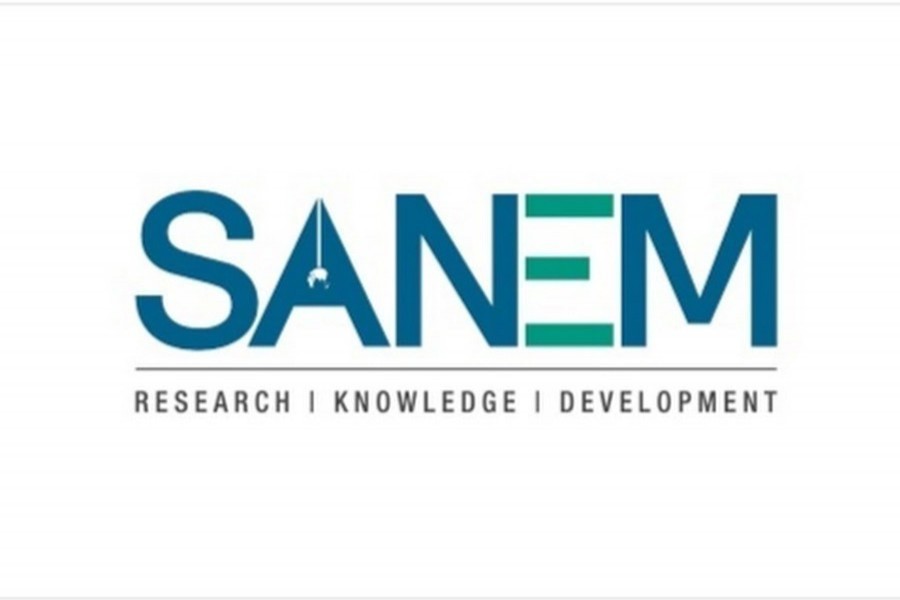The policies, rules and laws formulated through replicating the best practices create the scope of corruption in developing countries due to the weak implementation capacity of institutions, an economist said here on Thursday.
Good laws and rules set higher standards of economic activities which become unachievable for the implementation agencies, thus creating a culture of non-compliance of regulations, said Oxford University Professor Lant Pritchett.
He said these as the keynote speaker at a session of the 2nd SANEM International Development Conference (SIDC) 2021.
The RISE Research Director at Blavatnik School of Government at University presented the keynote paper title "Coping with Bad Shocks: Lessons from Growth Dynamics" at the second session of the conference.
South Asian Network on Economic Modeling (SANEM) organised the virtual conference on "Covid-19 Recovery: Contexts and Priorities", with SANEM executive director Dr Selim Raihan in the chair.
Eminent economist and founder of the Centre for Policy Dialogue (CPD) Professor Rehman Sobhan and CPD Distinguished Fellow Professor Mustafizur Rahman took part in the discussion on the presentation.
In the presentation, Professor Pritchett said that in comparison with the Organisation for Economic Co-operation and Development (OCED) countries, it is not that easy to predict different aspects of developing economies due to the question of stability.
He said the response of OCED economies to any shocks, regardless of types, is dissimilar to that of countries like Nigeria, Ghana or even Bangladesh due to the capacity of institutions working on shock recovery.
Formulating the rules and regulations like developed countries often makes it difficult for implementation agencies across developing nations due to lower execution capability, he opined.
"Recovering from economic shocks, whether caused by the Covid-19 pandemic or other reason, through calculating growth trajectories like an advance economy may have unmatched outcomes," he said.
However, the economist said that long term initiatives are required to increase the capability of institutions because the change cannot be made overnight.
Terming Bangladesh's overall economic growth quite good, he said: "The country has been making growth led by export-led industry (RMG) which on the other hand creates policy discrimination for other industries."
Higher standard of rules often discourages sectors with lower capacity to follow the rules which negatively impacts in the process of shock recovery, Mr Pritchett said. "So, setting growth target as per the rules having higher standard may have dissimilarity in actual outcome."
He said: "From that perspective, it can be said that good laws create corruption as the institutions, supposed to abide by those rules, bypass the regulations through different techniques as it is not possible for them to be complaint off."
To recover from economic shock, he said that borrowing may shorten the time of recovery process, but some questions must be asked in this regard.
He suggested to ask whether the existing 'political settlement' that sustains the current 'deals' (recovery measures) are good for growth to survive the shock.
"Does the shock have negative long-run implications for your country's current 'capability' in the export product space?" he raised question, adding: "Can the country really borrow enough to not have to worry about the dynamics of the shock?"
Taking part in the discussion, Professor Sobhan said that shocks are not the same for all countries; rather, it is sector-specific.
"Usually, the export sector gets much focus on the discussion of economic growth, while Bangladesh's economy is largely dependent on domestic market which seems quite stable throughout the pandemic," he said.
He said that stability in China's economy has helped its trade partners, especially in Asia and in close geographical proximity, survive well in the time of the coronavirus pandemic.
"Political settlement with influential regional economies and the crony capitalism in the country led by singly dominated export sector have contributed positively in the stability of business," he said.
However, Dr Rahman said weak infrastructure and low investment in education and skill development are among the key impediments towards capacity building of institutions.
The implications of rules are different for various sectors because of capacity which has overall negative impact on economic shock recovery, said CPD distinguished fellow Professor Mustafizur Rahman.


